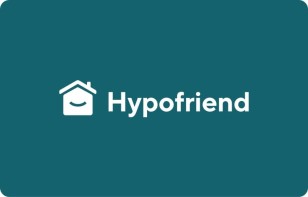Our German Housing Outlook (2025)
Maintaining a perspective that is both realistic and optimistic, our outlook for Germany heading into 2025 highlights continued positive trends in key areas. German house prices, having recovered significantly since late 2023, are expected to increase further due to persistent demand and constrained supply.Updated on 4 May 2025

Still, there is quite a bit of skepticism in the air. Our US-based friends fear the turmoil in the US. Our friends here in Europe fear that Euroland will be squeezed economically by the hegemony of the US and China and suffer from a militarily aggressive Russia and unrelenting climate change.
We remain realists and optimists:
We see house prices increase further and interest rates stabilizing on the lower side.
We don’t see any reason to divest from the stock market. It will always remain volatile and possibly go up.
We love the opportunity the German government has provided with their tax subsidies for rental properties and continue to find the best properties to make that work.
Ultimately, we all need to make the best of it, no matter all the noise.
Home Prices
House prices turned the corner in Germany in 2024. According to data compiled by mortgage consolidator Europace, the increase started 12 months ago, in December 2023, while official data show that house prices began their new ascent a few months later in Q1.
Since hitting bottom, prices are now about 3-4 % up for houses and 5-6% for apartments. Existing houses and apartments are still 8-9% below their peak of spring 2022. New-built properties have never dropped as much, and their prices are already higher than ever before.
What does that mean for the future? What we see now is in line with expectations. Typically, when prices increase, they keep increasing. We see scope for a little acceleration in the pace of increase in the benchmark 10-year German government bonds stays in the 2%-2,5% range.
House price index (2010=100)

With house prices down, building permits tanked to levels not seen since the 2007-2011 sub-prime and Greek crisis periods. Annual new-built permits are now 0,5 % of the housing stock and well below demand. Housing demand is driven by long-term trends of thinning households and population growth, especially in or near cities, and historically, still low interest rates.
Calculate your mortgage options
Use Hypofriend’s mortgage calculator to calculate your mortgage options in Germany.
We see continued pressure from high demand and lack of supply on house prices. In the small neighboring Holland, which has better data and a more responsive market, prices have already increased by 11%.
So, now is a good time to review your affordability heading into 2025.

What Is In Store For Interest Rates In 2025?
Mortgage rates were mostly lower this year, with banks reducing their spreads.
The benchmark 10-year German government bonds peaked in June at about 2,7 % and have trended down since mid-year, with inflation finally reaching within the 2 % target range. Without concerns about US government deficits, interest rates would have been down further.
For 2025, we expect flat rates to fall. In principle, US spending and trade wars should be reflected in lower economic growth and a higher US dollar, which would actually allow for lower interest rates in Europe. Whether this will happen depends very much on whether European governments stay the course of fiscal modesty.
In any case, don’t count on massive declines. Even with this scenario, US expansion will suck in a lot of global bond savings and keep rates pretty elevated. You can follow the current rates in our interest rate tracker (see illustration below).
Historical interest rates in Germany

New Depreciation Laws Make Rental Property Investment Very Attractive
In Germany, many people invest in rental properties because banks offer landlords great borrowing conditions, and you can depreciate the property and deduct that amount from your income taxes. This is quite unique in the world.
In March 2024, the government made such investments even more attractive with accelerated depreciation rules for energy-efficient new build properties. These rules come on top of earlier favorable changes in depreciation rules and special KFW financing programs for energy-efficient properties.
The combination of a special depreciation of 5 % annually (§7b EStG) and the 5 % degressive depreciation, in combination with subsidized KFW financing, can generate expected rates of return on investment of 15–25 % per year. It makes eligible investment properties extremely interesting as long as you plan to stay in Germany for at least 5–6 years.
However attractive the rules have become, builders still need to deal with complex permit structures at local government levels. Hence, the race is on to secure the best properties and build them within the low-cost and high-standard limits that are conditions for these special tax subsidies and loans.
At Investfriend, we have focused our energy on selecting and vetting commission-free projects and offering them as hassle-free turnkey investments. In other words, we aim to lower the threshold for making such investments. While local government politics and permit structures are complex, we are confident that our offerings are attractive and come through.
